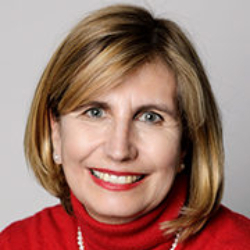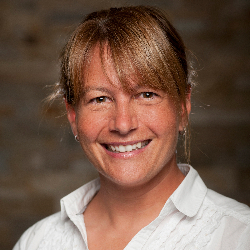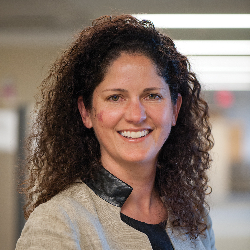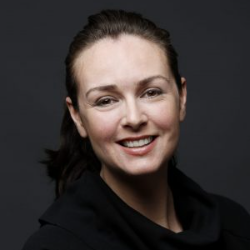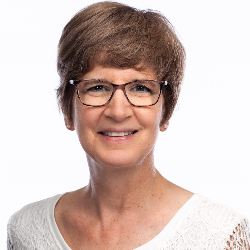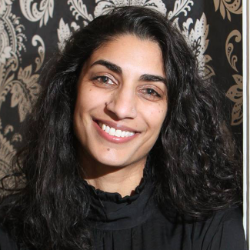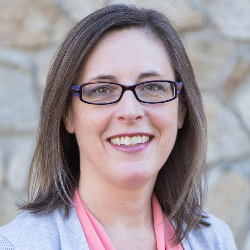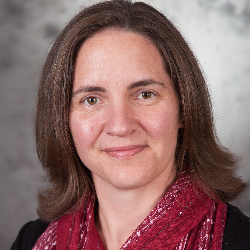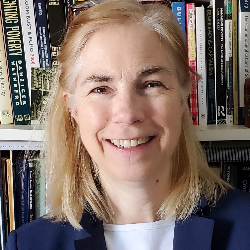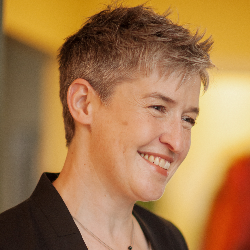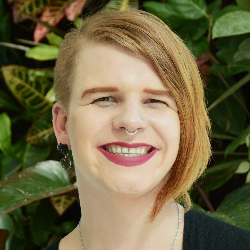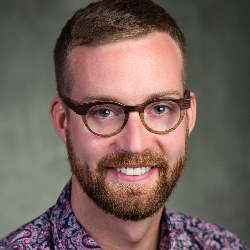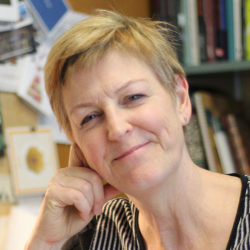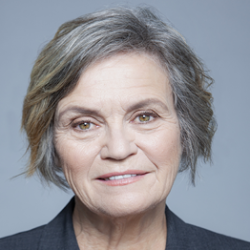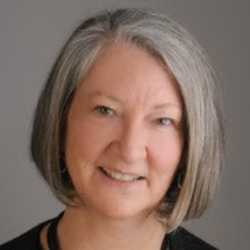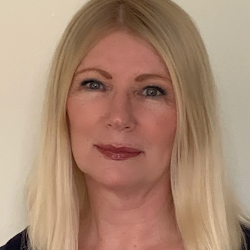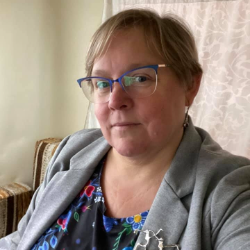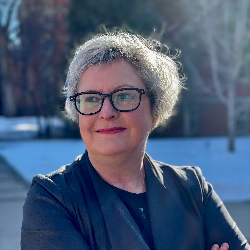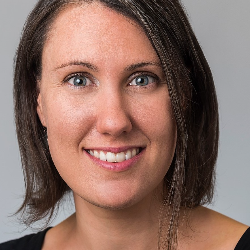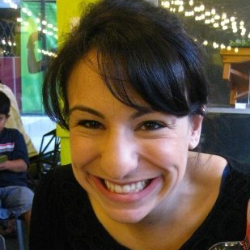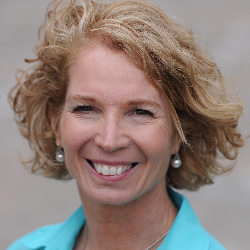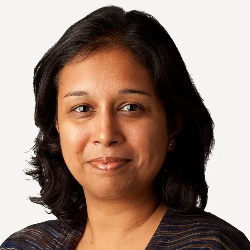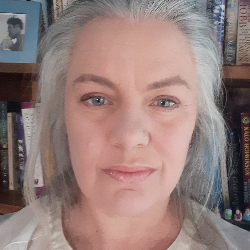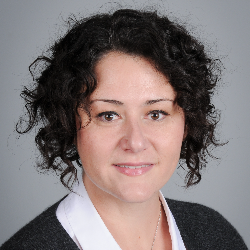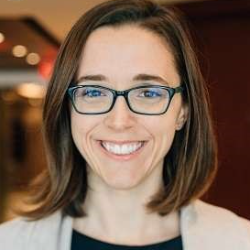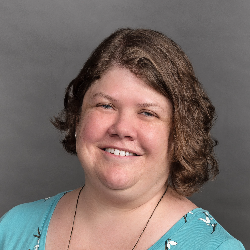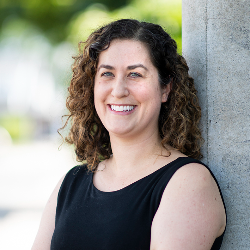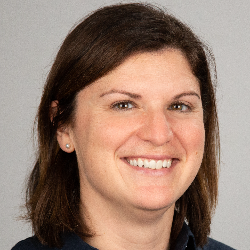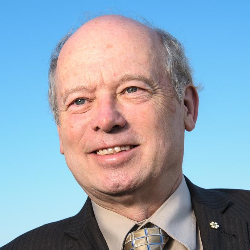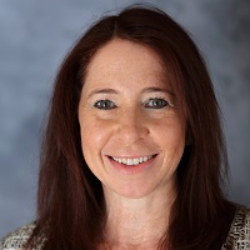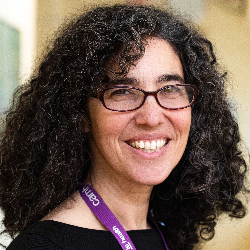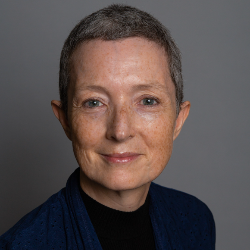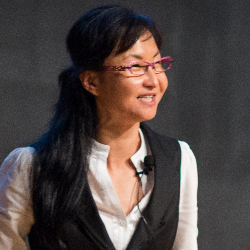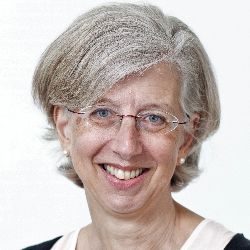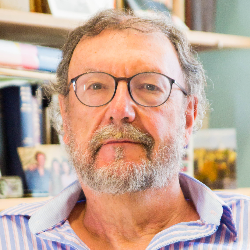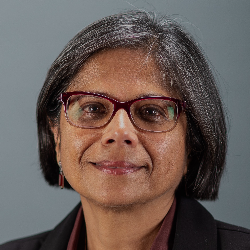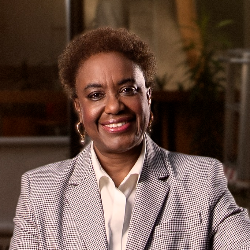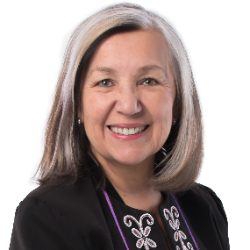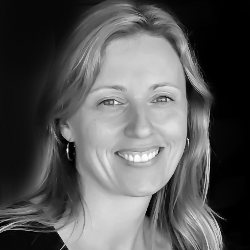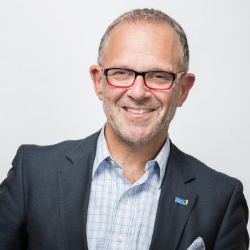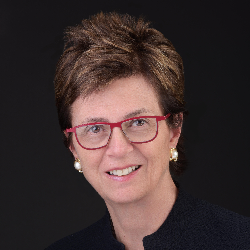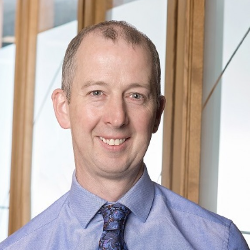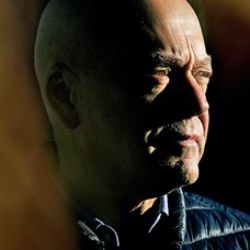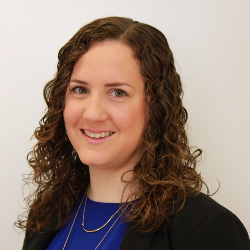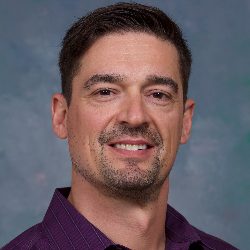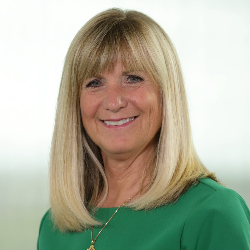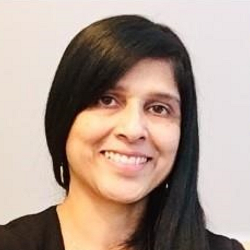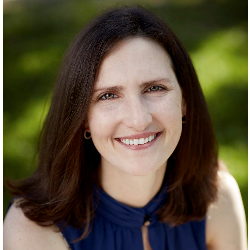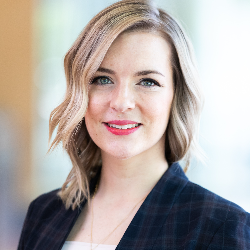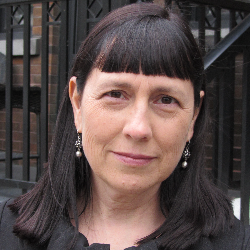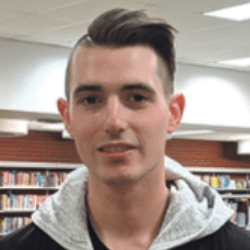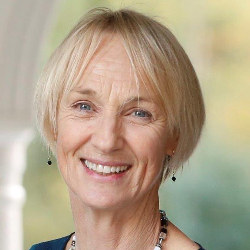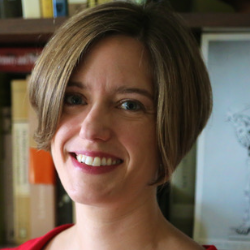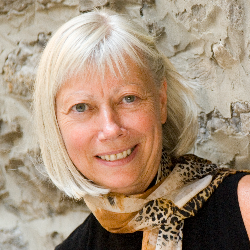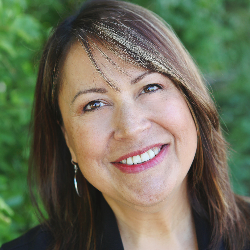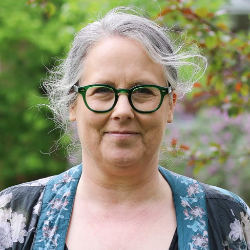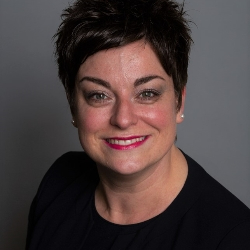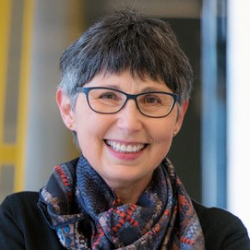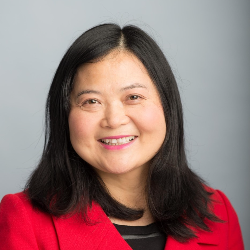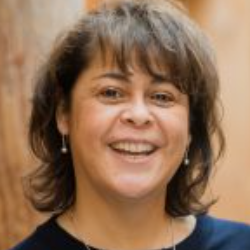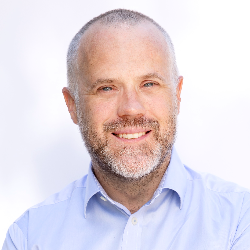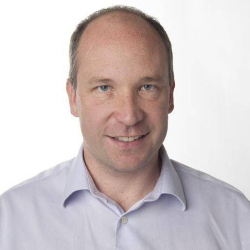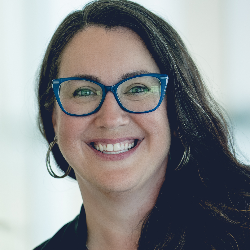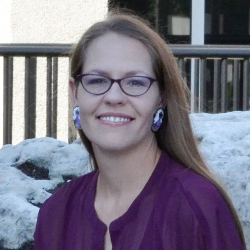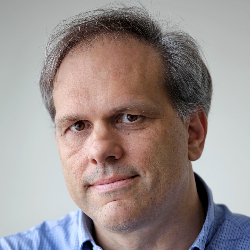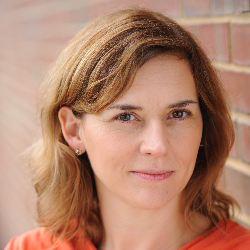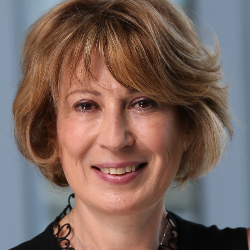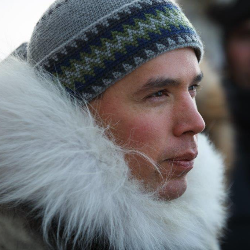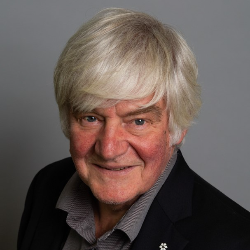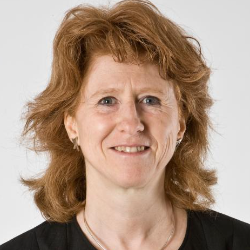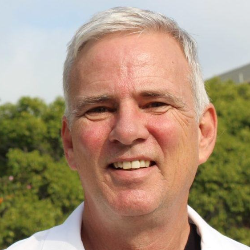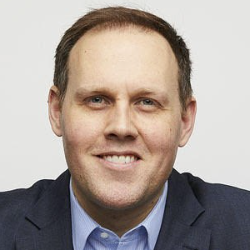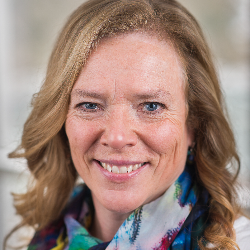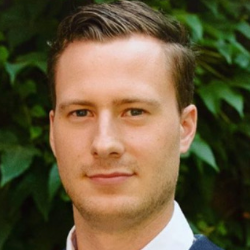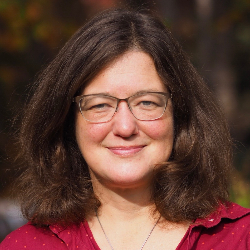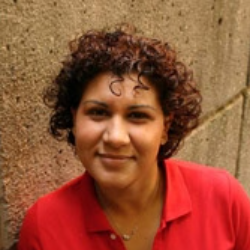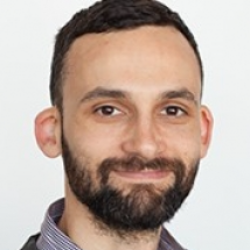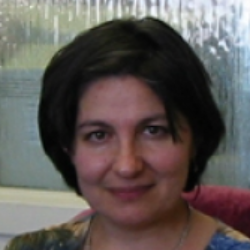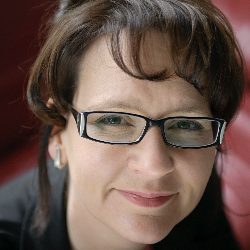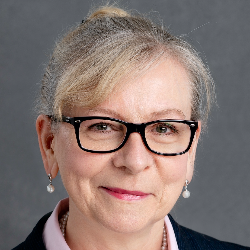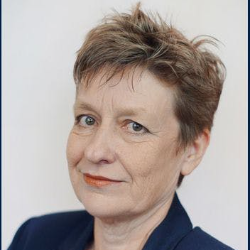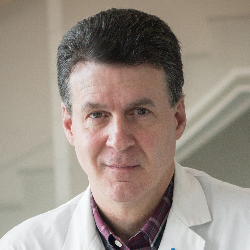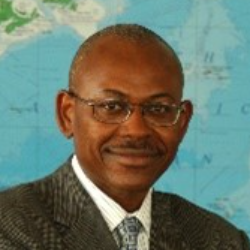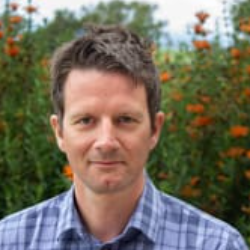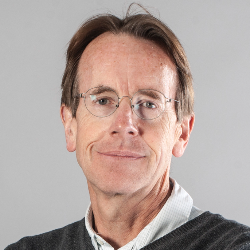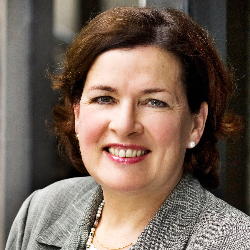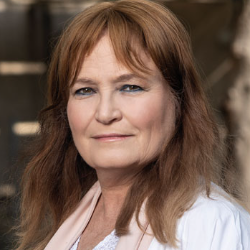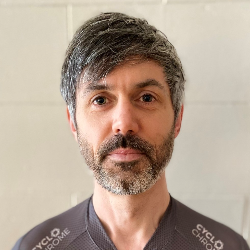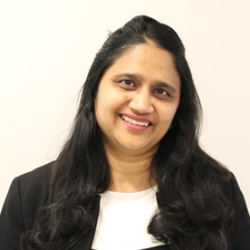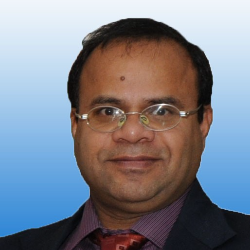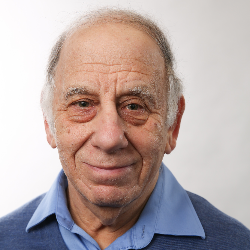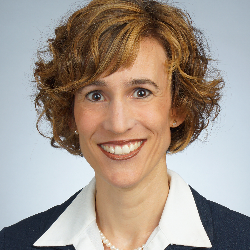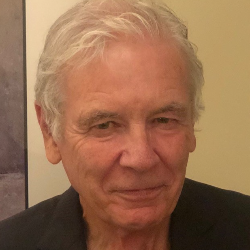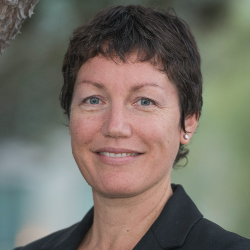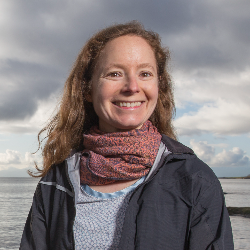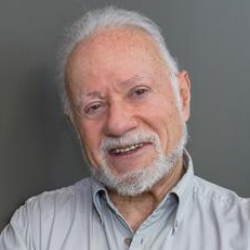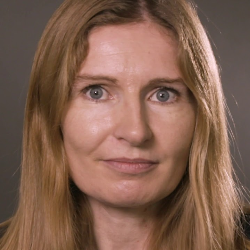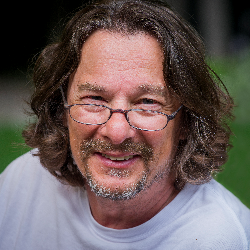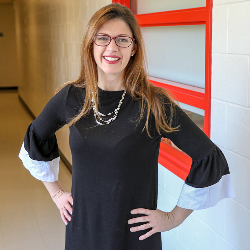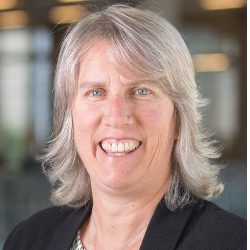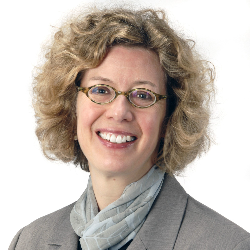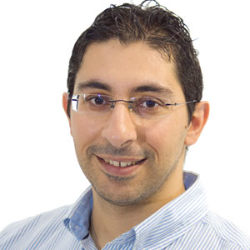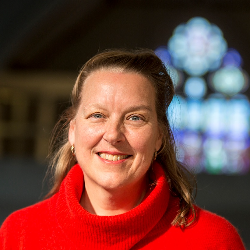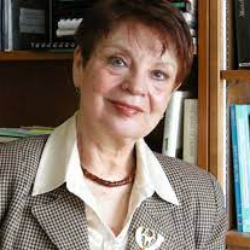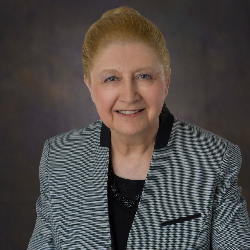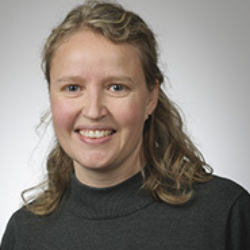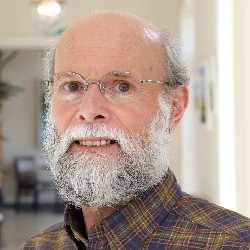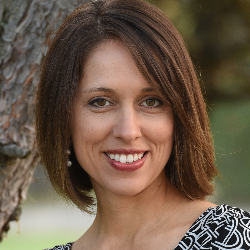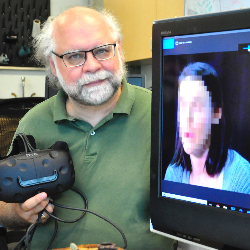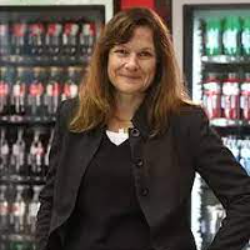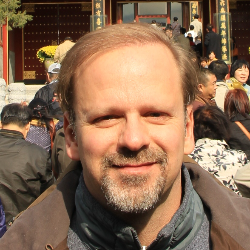All times are in EST
-
Introductory Panel: Symposium on the Impact of COVID-19 on Women in Canada
Monday, November 15 9:00 AM - 10:00 AM
The COVID-19 pandemic has had profound and pronounced impacts on women in Canada, and the opening day of COEE 2021 will focus on these impacts in order to emphasize the critical importance of a diversity of research perspectives and a diversity of policy responses.
Women in Canada have, compared to men, experienced significantly worse impacts in loss of paid employment. As demands on caregivers – both unpaid and paid – surged, it is women who have borne the greatest burdens. Repeated stay-at-home orders have increased risks of gender-based violence for girls, women and gender-diverse people living in violent situations. School closures have impacted learning for girls in primary and secondary school. Young women in postsecondary face a more challenging transition to the workforce because of the pandemic-related recession. The tax system, used to deliver much of the emergency income support during COVID, continues to have gendered effects even as it strives for neutrality. Women have reported more mental distress during the pandemic, and we see gendered impacts in the health system including unmet health needs and hospital admissions for anxiety and eating disorders.
Yet, Canadian women have not experienced this pandemic equally. Those in the 2SLGBTQI have experienced even higher rates of job loss and risks to their mental and physical health. Women in Black and other racialized communities have experienced greater risks of economic losses, more challenges in accessing the social safety net and essentials such as adequate and stable housing, all while also facing disproportionate risks of COVID exposure. Indigenous women and girls have found the health crisis in their communities weaponized as a means to fast-track other policy changes that run counter to the obligations of reconciliation. Women, and particularly BIPOC women, are more likely to live with a disability. Women with disabilities have experienced some of the worst situations during this pandemic – in economic impacts, risks to safety, risks to health and more.
Co-chaired by Dr. Jennifer Robson and Dr. Lindsay Tedds, The Working Group on COVID-19 and Women in Canada is preparing a collection of briefings from a diverse group of experts in the academic, healthcare, and voluntary sectors. Each brief presents the state of the knowledge and advances options for change – in policy and practice – for the post-COVID period. The diversity of voices and perspectives in this collection serves as a reminder that, while compared to men, Canadian women have had distinct experiences of the pandemic, there has been at least as much difference of experience among women and gender-diverse persons.
This collection of briefs will be of interest to policymakers at all orders of government, analysts in the private and public sectors, as well as to practitioners, including service-providers and community organizations.
Perhaps the most resounding lesson from the pandemic and our effort to understand and respond to it, is the need to mainstream analysis and advice that takes account of differences by gender, race, income, disability status and more. Attention to gender differences, and differences of experience within a gender, has proven critical to understanding risk and capabilities. In the post-COVID phase, that GBA+ perspective can and must be embedded in how Canada, across the public, private and voluntary sectors, plans for and implements the recovery from the COVID pandemic and recession.
The Policy Briefing is scheduled for publication in the winter of 2021.
-
Women in Racialized Communities
Monday, November 15 10:30 AM - 11:30 AM
This panel will discuss how women in black and other racialized communities have experienced greater risks of economic losses, more challenges in accessing the social safety net and essentials such as adequate and stable housing, all while also facing disproportionate risks of COVID exposure.
-
Women in the Economy
Monday, November 15 10:30 AM - 11:30 AM
This panel will discuss how women in Canada have, compared to men, experienced significantly worse impacts in loss of paid employment.
-
LGBTQI2S Communities
Monday, November 15 1:00 PM - 2:00 PM
This panel will discuss how those in the LGBTQI2S have experienced even higher rates of job loss and risks to their mental and physical health.
-
Women and the Tax System
Monday, November 15 1:00 PM - 2:00 PM
This panel will discuss how the tax system, used to deliver much of the emergency income support during COVID, continues to have gendered effects even as it strives for neutrality.
-
Women and Childcare
Monday, November 15 2:30 PM - 3:30 PM
This panel will discuss how demands on caregivers – both unpaid and paid – surged and it is women who have borne the greatest burdens.
-
Gender-Based Violence during COVID-19
Monday, November 15 4:00 PM - 5:00 PM
This panel will discuss how repeated stay-at-home orders have increased risks of gender-based violence for girls, women and gender-diverse people living in violent situations. -
Women’s Psychological Well-Being
Monday, November 15 4:00 PM - 5:00 PM
This panel will discuss how women have reported more mental distress during the pandemic, and we see gendered impacts in the health system including unmet health needs and hospital admissions for anxiety and eating disorders.
-
Women as Learners
Monday, November 15 6:00 PM - 7:00 PM
This panel will discuss the impact on learning for girls during primary and secondary school closures and how young women in postsecondary face a more challenging transition to the workforce because of the pandemic-related recession.
-
Women’s Physical Health
Monday, November 15 6:00 PM - 7:00 PM
This panel will discuss a wide range of issues relating to the pandemic and impact on women's physical health.
-
COVID-19 and Intellectual and Developmental Disabilities
Tuesday, November 16 9:00 AM - 10:00 AM
This panel will discuss how large scale studies have shown that persons with lifelong intellectual/developmental disabilities such as, Down syndrome, cerebral palsy, autism spectrum disorder, fetal alcohol spectrum disorder are more susceptible than the general population to develop COVID-19 infection and to suffer more severe outcomes including death from infection.
-
The Scope and Scale of Online Intimidation
Tuesday, November 16 9:00 AM - 10:00 AM
Social media is now a well-entrenched tool for both supporting and disrupting the circulation of credible information and analysis. Much of this is automated, through bots that add to or amplify intimidation, threats, and disinformation, and through social media company algorithms and mechanisms that seek to weed out such content. Is this sufficient to address intimidation and disinformation campaigns? What are the cultural, social, and political implications of corporate-managed social media becoming a major channel for public education and influencing even the tone of public debate?
-
Academic Freedom and Responsibility
Tuesday, November 16 10:30 AM - 11:30 AM
Fundamental questions regarding the role of the university in contemporary society crystallize around what constitutes academic freedom. While this notion is arguably meant to protect a safe space of critique of or dissent from state or corporate control, the university is increasingly dependent on both sectors for the resources it needs to function, expected to produce economically productive citizens, and offer the central avenue for social mobility in a stratified society – all of which imbricate it in the very interests it is meant to be free to critique.
The notion of academic freedom is also meant to protect a safe space of knowledge production, understood as a process separable from immediate social, economic or political interests or conditions. This understanding has been destabilized as we increasingly see knowledge production as a situated, political, social construction – with the inevitable result of requiring debate over what should count as legitimate knowledge and why. To the extent to which the university did indeed democratize in the period following WWII, it has increased the diversity of stakeholders, and therefore of voices and positions and interests in defining legitimate knowledge.
The university is a participant in contemporary reckonings with the violences of colonialism and capitalism, past and present, especially as linked to a wide variety of patterns of domination, including systemic racism and patriarchy. This leads to questions about the university as a legitimate and privileged space of knowledge production, as a source indeed of authorization, or what we might call “expertise”.
Somewhere, then, the notion of a space safe for dissent encounters the notion of a space capable of exerting a violence of its own, as we try to hold in one frame the ideas of academic freedom, human dignity and equity of access to resources.
The RSC has constituted a Working Group on Academic Freedom and Responsibility to: 1) to articulate the core elements of what these debates have in common: what the core issues are; 2) to summarize key elements of major perspectives on these issues; 3) to provide a set of principles and goals which might be useful as a guide to thinking through specific cases.Outcomes of the Working Group’s efforts will form the basis of discussion at the 2021 COEE.
-
Supporting Displaced Scholars
Tuesday, November 16 10:30 AM - 11:30 AM
In early 2021, the RSC College began a process toward establishing an initiative to advance inclusive excellence by acknowledging exceptional and high-achieving At-Risk and Displaced Academics and Artists (ARDAA) in Canada. Our ARDAA initiative aligns with a Universities Canada priority of reducing some of the ‘barriers to equity, diversity and inclusivity on campus and in society’, and establishes a link with the United Nations’ 17 Sustainable Development Goals (2015), which challenges people to work together to ensure that ‘no one is left behind’.
Aware of international precedents, the RSC initiative led by the College is developing a “Made-In-Canada” approach. This event provides an opportunity to discuss the possibilities of the programme and next steps.
-
Workshop on Preparing a RSC Nomination - Password: 251233
Tuesday, November 16 12:00 PM - 1:30 PM
The session provides guidance to Fellows, Members of the College, and institutions who are considering nominating individuals for membership and RSC medals and awards.
-
Building a Healthier Canada: Strengthening the Workforce and Canadian Health Care Institutions
Tuesday, November 16 12:30 PM - 3:00 PM
Since its establishment in April 2020, the RSC Task Force on COVID-19 has commissioned a series of studies related to health and health care in Canada, including Policy Briefings on Long-Term Care, Homelessness, Epidemiology, and Excess Deaths due to COVID-19.
In the fall of 2021, the RSC will publish a series of Policy Briefings that will animate discussion on how to build a healthier Canada coming out of COVID-19, including Post-COVID Healthcare in Canada, Post-COVID Critical Care, and The Future of the Nursing Workforce.
With audience engagement throughout the symposium, the event will close with an exchange of views about next steps in each of these areas guided by the aspiration of emerging from the pandemic as a better society than we were going into it.
TUESDAY, NOVEMBER 16, 2021
TIME
PANEL
PANELISTS
12:30 PM
Opening
The Honourable Mohamed-Iqbal Ravalia, Senator
12:35 PM
Welcoming Remarks
Dr. Steven Liss, Vice-President, Research and Innovation, Ryerson University
12:40 PM -1:15 PM
POST-COVID HEALTHCARE IN CANADA
Moderator | Modérateur
Mohamed-Iqbal RavaliaDr. Linda Rabeneck, Professor of Medicine, University of Toronto
Dr. Christopher McCabe, Executive Director and CEO, IHE
Dr. Lisa Richardson, Internist and Indigenous Health Lead, UHN
1:15 PM -1:50 PM
POST-COVID CRITICAL CARE
Moderator | Modérateur
Mohamed-Iqbal RavaliaDr. Noel Gibney, Intensivist, University of Alberta
Dr. Mélanie Gauthier, President, Canadian Association of Critical Care Nurses
Dr. Bojan Paunovic, Intensivist, Health Science Center Winnipeg
1:50 PM -2:25 PM
FUTURE OF THE NURSING WORKFORCE
Moderator | Modérateur
Mohamed-Iqbal RavaliaDr. Gail Tomblin Murphy, Vice-President of Research and Chief Nurse Executive, Innovation and Discovery, Nova Scotia Health
Dr. Tara Sampalli, Senior Scientific Director, Research, Innovation and Discovery, Nova Scotia Health Authority
2:25 PM -3:00 PM
NEXT STEPS AND THE PATH FORWARD
Moderator | Modérateur
Mohamed-Iqbal RavaliaDr. Linda Rabeneck, Dr. Noel Gibney and Dr. Gail Tomblin Murphy
-
Reducing Harm Through Decriminalization
Tuesday, November 16 4:00 PM - 5:00 PM
COVID-19 has shone a light on the adverse impact of Canada’s legislative approach to people who use drugs and the significant harms they suffer as a result. The pandemic has worsened an already devastating opioid epidemic. There has been an increased number of overdose deaths since March 2020. It is therefore imperative to ensure that, as Canadian society recovers from COVID-19, we make it a priority to address the human rights of people who use drugs.
It is well-documented that a number of significant harms result from the criminalization of drugs for personal use. Criminalization results in adverse health impacts because it increases harms associated with drug use such as increased risk of infectious disease and an increased risk of violence. Criminalization also interferes with the delivery of essential public health measures to people who use drugs. Importantly, criminalization has a disproportionate impact on racialized groups in Canada, leading to intergenerational incarceration cycles and trauma.
The RSC Working Group on Harm Reduction will include experts from multiple disciplines as well as input and narratives from people with lived experience. The Working Group will contextualize the criminal law regime for the control of drugs in Canada including the constitutional considerations relevant to the ongoing criminalization of personal possession and the likely impacts of Bill C-22, which proposes a series of reforms to Canada’s current criminal law framework.
Through an analysis of the adverse impacts associated with the Canadian legislative regime on people who use drugs, the Working Group will recommend elements of a Canadian framework for drug decriminalization in Canada.
The Policy Briefing is scheduled for publication in the late summer of 2021. -
Royally Wronged: The RSC and Indigenous Peoples
Tuesday, November 16 4:00 PM - 5:00 PM
The Royal Society of Canada elects to its membership leading scholars in the Arts, Humanities, Social Sciences, and Sciences, providing its “seal of excellence” to those who advance artistic and intellectual knowledge in Canada. The RSC’s membership has historically been overwhelmingly white and male. Duncan Campbell Scott, one of the architects of the notorious Indian residential school system, served as its President and dominated its activities for many years. Many other members played a significant role in shaping knowledge systems rooted in colonialism, that built and implemented policies that have proven catastrophic for Indigenous communities. This volume of essays begins to explore how Royal Society scholars helped to construct the intellectual foundations that shored up white-settler privilege and erased the knowledge contributions of Indigenous peoples.
The impetus for this book began when Cindy Blackstock, a well-known Indigenous member of the RSC, brought the Society’s linkages with Duncan Campbell Scott to our attention, and urged us to make further inquiries into our Society’s history and on-going responsibility for Truth and Reconciliation with Indigenous Peoples. The RSC created a Task Force on Truth and Reconciliation. Its members conceived the idea of a volume of interdisciplinary essays on this topic and discussed how a collaborative process might produce this. A call for papers brought the RSC authors together, and they produced the chapters that constitute this book.
These interdisciplinary essays, authored primarily by current RSC members, explore the historical contribution of the RSC and of Canadian scholars to the production of ideas and policies that underpin the disastrous interaction of settlers with Indigenous peoples. The historical essays focus upon the RSC’s founding in 1882 to the mid-twentieth century. The later chapters bring the discussion forward to the present, documenting some of the first steps taken to change these damaging patterns, and challenging the Society and Canadian scholars more generally to make substantial changes for the future.
-
COVID-19, Children and Schools
Tuesday, November 16 6:00 PM - 7:00 PM
In the late summer and fall of 2021, the RSC published a Policy Briefing on COVID-19, Children and Schools, as well as a Collection of Essays on COVID-19, Language and Literacy. This panel will take stock of the status and next steps for schools, children and learning during the pandemic. -
Deepening and Broadening Political Institutions in Canada
Tuesday, November 16 6:00 PM - 7:00 PM
Pandemic-related challenges of political representation have been visible throughout the Canadian political system. Some elected legislatures, including our federal Parliament, quickly adopted digital technologies to enable members to meet from across the country. Others simply stopped meeting; in Nova Scotia, for instance, the legislative assembly met for just a single day in the year that followed the pandemic.
While these responses have raised concerns about the health and resilience of our democratic institutions, they have also created new opportunities for legislators – digital voting, reduced travel, more time in constituencies – that have the potential to increase equity for elected representatives and improve responsiveness for citizens.
At the same time, major challenges related to the role of expertise in our political system have been equally apparent throughout the pandemic. In a democratic society, the necessary expertise involved in an optimal response to a societal threat involves much more than public health – it also implicates economics, behavioural science, public administration, sociology, and more. While our elected leaders’ willingness to defer to expert advice has been impressive, it has also raised important questions. For example, how much should decision-making authority rest with experts versus those with democratic mandates? What forms of expertise should we empower? How can universities and professional organizations be engaged? And what about the persistent challenge of data – by many accounts, we have too little data in this country, and use the data we do have is mobilized much too slowly.
Chaired by Dr. Peter Loewen, the RSC Working Group on Political Representation and Expertise will focus on establishing an evidence base from which recommendations can be developed to improve our existing systems of expertise, particularly in provincial and federal public services, while also incorporating new and diverse forms of expertise into our policy making processes. Key questions include:
1.How can we improve existing institutions and practices in Canadian politics and policy? That is, how can we deepen and strengthen them?
2. How can we construct new institutions and practices to increase inclusion in Canadian politics and policy? That is, how can we broaden them?
The Policy Briefing is scheduled for publication in the summer of 2021.
-
*G7 Research Summit | Climate Change Implications, Adaptation and Mitigation Options for Canada
Wednesday, November 17 9:30 AM - 2:30 PM
Since 2005, the national science academies of the G7 have prepared statements for the G7 governments.
In 2018, the RSC began organizing annual G7 Research Summits in order to amplify the findings and next steps outlined in one or more of the “S7” statements.
On November 17, 2021, on the heels of COP 26, the RSC G7 Research Summit will focus on Climate Change Implications and Mitigation Options for Canada, using the S7 statement on Net Zero as the catalyst for discussions.
-
FRENCH INTERPRETATION: G7 Research Summit - Climate Change Implications and Mitigation Options for Canada
Wednesday, November 17 9:30 AM - 2:30 PM
-
Health Data in Canada
Wednesday, November 17 4:00 PM - 5:00 PM
Health data are essential. This is not a new insight, but discussions about health data are now much more widespread as a result of the COVID-19 pandemic. Case counts, hospitalization rates, and epidemic curves are common currency in everyday discussions. Equally, there have been conversations about the data that were missing, such as data about race, occupation and socioeconomic status, and how that lack harmed our understanding of the individual and community consequences of the pandemic.
In Canada, these conversations are happening in the context of a constitutional federation that is in a process of reconciliation with Indigenous nations, and in which it is sub-national jurisdictions that are responsible for health care delivery. The result is a complex mix of data we do not have, data we do have but do not share, and data that even if they were shared are not comparable because they are collected in different formats using different systems, definitions and rules.
There are a number of initiatives to try and address all of these issues. Some initiatives are community-driven, such the creation of principles to guide the collection and use of data, particularly about identifiable populations or communities. Other initiatives are driven by governments, including the development of a Pan-Canadian health data strategy. All are focused on a desire to ensure that health data are available to tell the stories and provide the evidence we need to understand and ultimately improve services and outcomes for everyone in Canada.
This session will talk about some of these initiatives, why they have been so long in coming, why previous attempts at organizing health data have failed, and why there is some hope that this time will be different.
-
Applied Sciences and Engineering | Divisional Meeting | Academy III
Wednesday, November 17 7:00 PM - 7:30 PM
-
Earth, Ocean and Atmospheric Sciences | Divisional Meeting | Academy III
Wednesday, November 17 7:00 PM - 7:30 PM
-
-
Mathematical and Physical Sciences | Divisional Meeting | Academy III
Wednesday, November 17 7:00 PM - 7:30 PM
-
*McGill Symposium | Lessons Learned From COVID-19: Impacts, Consequences, Learnings and Looking Forward
Thursday, November 18 8:45 AM - 5:00 PM
The subject of the symposium is the biological, medical and other knowledge that has been obtained through the unprecedented response from the scientific community to COVID-19, and the lessons for future science policy. COVID-19 has led to an unparalleled engagement from the scientific, medical, public health and pharmaceutical industries to combat the pandemic. The many successes include the development of new therapies and vaccines in record time, but the complicated and severe sequelae of the disease are likely to remain as significant health problems for many years to come. Important scientific questions, such as the degree and duration of protection after vaccination in the face of new virus mutation, remain to be addressed. The pandemic has also revealed important issues about public policy, scientific preparedness and need for on-going investment in science to meet future needs. These and other issues will be examined during the symposium.
-
FRENCH INTERPRETATION: McGill Symposium |Lessons Learned From COVID-19: Impacts, Consequences, Learnings and Looking Forward
Thursday, November 18 8:45 AM - 5:00 PM
-
McGill Digital Time Capsule Event | Celebrating McGill University’s 200th anniversary
Thursday, November 18 5:30 PM - 6:00 PM
Join us for an engaging panel discussion with three McGill RSC Fellows and Members of the College of New Scholars, Artists and Scientists, who participated in the University’s landmark Bicentennial Digital Time Capsule Project.
As McGill approached its 200th anniversary, over 50 top researchers each addressed the question: What will be the biggest change or discovery in your field over the next 25 years? Their responses are featured in this one-of-a-kind legacy collection of short videos. Panelists will once again cast their eye into the future, this time to envisage the future of research in a post-COVID world. Don’t miss this fun and forward-looking evening!
-
RSC Awards Ceremony
Friday, November 19 10:00 AM - 11:30 AM
RSC presents a series of awards and medals to honour individuals selected for their exceptional contributions.
-
Presentation of New Members of the RSC College
Friday, November 19 1:00 PM - 2:30 PM
This ceremony welcomes new Members of the College in a format that showcases the interdisciplinary character of the College.
-
Induction of New RSC Fellows
Friday, November 19 3:00 PM - 6:00 PM
Election to the Royal Society of Canada is the highest honour a scholar, scientist or artist can achieve in Canada as it recognizes the outstanding contributions to Canadian intellectual life and to knowledge.
The RSC is delighted to recognise this year’s exceptional cohort of Fellows who have significantly impacted their respective disciplines at both national and international levels.
-
Celebrating the Class of 2014 of the RSC College
Friday, November 19 7:00 PM - 7:30 PM
At the 2021 Celebration of Excellence and Engagement, the inaugural cohort of the RSC College – elected in 2014 – will complete their term as members. In honor of their ongoing achievements, and to celebrate this momentous occasion in the history of the RSC and of Canada, members of The Class of 2014 will convene to update Canadians on their continued journey in research, performance and scholarship.
-
RSC Annual Meeting of the Members
Saturday, November 20 10:00 AM - 11:30 AM
At the Annual General Meeting (AGM), the membership formally reviews the RSC’s finances, considers proposed changes to bylaws, and elects RSC Board of Directors.
-
The 2021 Romanowski Lecture - Presented by Dr. Ajay K. Dalai, FRSC
Saturday, November 20 12:00 PM - 1:00 PM
Clean Sustainable Energy Production for Pollution Abatement Using Bioprocessing Technologies
Biofuels, which are gaining attention as renewable energy sources, can be produced from a wide variety of renewable feedstocks and biogenic wastes through thermochemical, biological and hybrid conversion technologies. This presentation will highlight the current Canadian and global scenario and strategy on pollution control, and candidacy of a variety of bioprocessing technologies for a wide range of waste feedstocks such as lignocellulosic biomass to produce clean sustainable energy production. This with will focus on some notable research studies conducted in the Catalysis and Chemical Reaction Engineering Laboratories (CCREL) over the past 25+ years at the University of Saskatchewan on biomass-to-liquid (BTL) conversion technologies to produce synthetic transportation fuels and carbon-rich solid products and on pollution control strategies from conventional thermal power plants. The current progress, challenges and knowledge gaps in the R&D of these technologies for the production of synthetic hydrocarbon fuels from waste resources as well as their global opportunities for bio-economy will be presented.
-
Members Spotlight | Lightning Talks
Saturday, November 20 2:00 PM - 6:00 PM
Lightning talks aim to share deep insights within six minutes each. They are opportunities for new and current Members to introduce their work and to share areas of ongoing and emerging focus.

